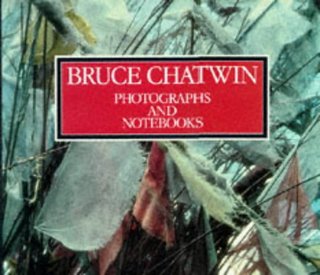The Art of Fiction was a famous essay by Henry James, from 1885. This blog is written by Adrian Slatcher, who is a writer amongst other things, based in Manchester. His poetry collection "Playing Solitaire for Money" was published by Salt in 2010. I write about literature, music, politics and other stuff. You can find more about me and my writing at www.adrianslatcher.com
Saturday, December 31, 2005
Soundtrack to 2005
Tuesday, December 27, 2005
Cold Turkey
CHRISTMAS DAY
The weather was unusually mild this year.
Mid-afternoon we strode amongst swans and coots
And Canadian geese on the grass shore of the reservoir.
In the distance our house is a dot, unique detail of a still life.
We paint only with our feet, scribing our names in dust,
Then scrubbing over them, unaccountably embarassed.
The roof of the conservation centre is moss covered,
And the lead swan, beak like a drill, badmouths at me -
I turn around - even in the natural light
Grey spots mist my eyes over, turning my head.
The unasked-for walk had somehow punctured
What usually happens - we'd sit here
Rolled-up in the floral chairs, watching the Queen's speech,
Making points off each other, having had our fill.
Each year, the same cards draped over the mantle,
From a man my dad knew in the army and the wife he'd never met
Or that old couple who were neighbours of the uncle in
I stayed out of it; leaving my best words for those I truly might love -
Tentative girls who've texted at
I know what comes next from other years,
Boiling in too close proximity, we steam over
Spilling our worst over the hob, emptying another glass.
So how come we're sat here still liking each other?
Not looking either forward or back,
Even grateful for the familiar shows, and the Christmas tape
My dad always plays. My sister, fully expectant
With their first grandchild; her husband watching the football,
And me, unused to behaving with such forbearance.
The weather was unusually mild this year.
Tuesday, December 20, 2005
Annual Report Rhubarb Rhubarb Rhubarb
Sunday, December 11, 2005
Art of the essay and other news
Saturday, December 10, 2005
Auditory Experiences
Monday, December 05, 2005
Influencing the Mainstream
Thursday, December 01, 2005
Memorabilia

The book trade loves "memorabilia" - books about books and writers that are there as mere mementoes. Weirdly, though I hate these kind of books when they're touted as Xmas presents, (Little Books of Calms, Schott's and Shite's Miscelannies, Daisy Goodwin's poetry collections et al) I'm remarkably fond when they're the ephemera around my own literary interests. I've picture books of Fitzgerald, a "Kafka's Prague" bought in that city and now, Bruce Chatwin's Photographs and Notebooks. I don't know how this one ever passed me by? Its a real coffee table job; and whether the photos are good, bad or indifferent, somehow, since so much of his writing was around travel, it adds rather than subtracts. Hardly a bargain, at a tenner, but that's about the cheapest you'd find it on the net, and this was Oxfam Didsbury, where, clearly all my Christmasses are coming at once, I picked up Anthony Burgess's "A Shorter Finnegans Wake." If there was ever a book I didn't need, then its this one, but its a lovely sixties Faber paperback, and I'm ridiculously pleased at the find. I've bought half a dozen books this week, and all second-hand. I'm not sure I'll ever buy a new book again; so uninteresting are the high street selections; whereas go into any secondhand bookshop and you find these random gems.